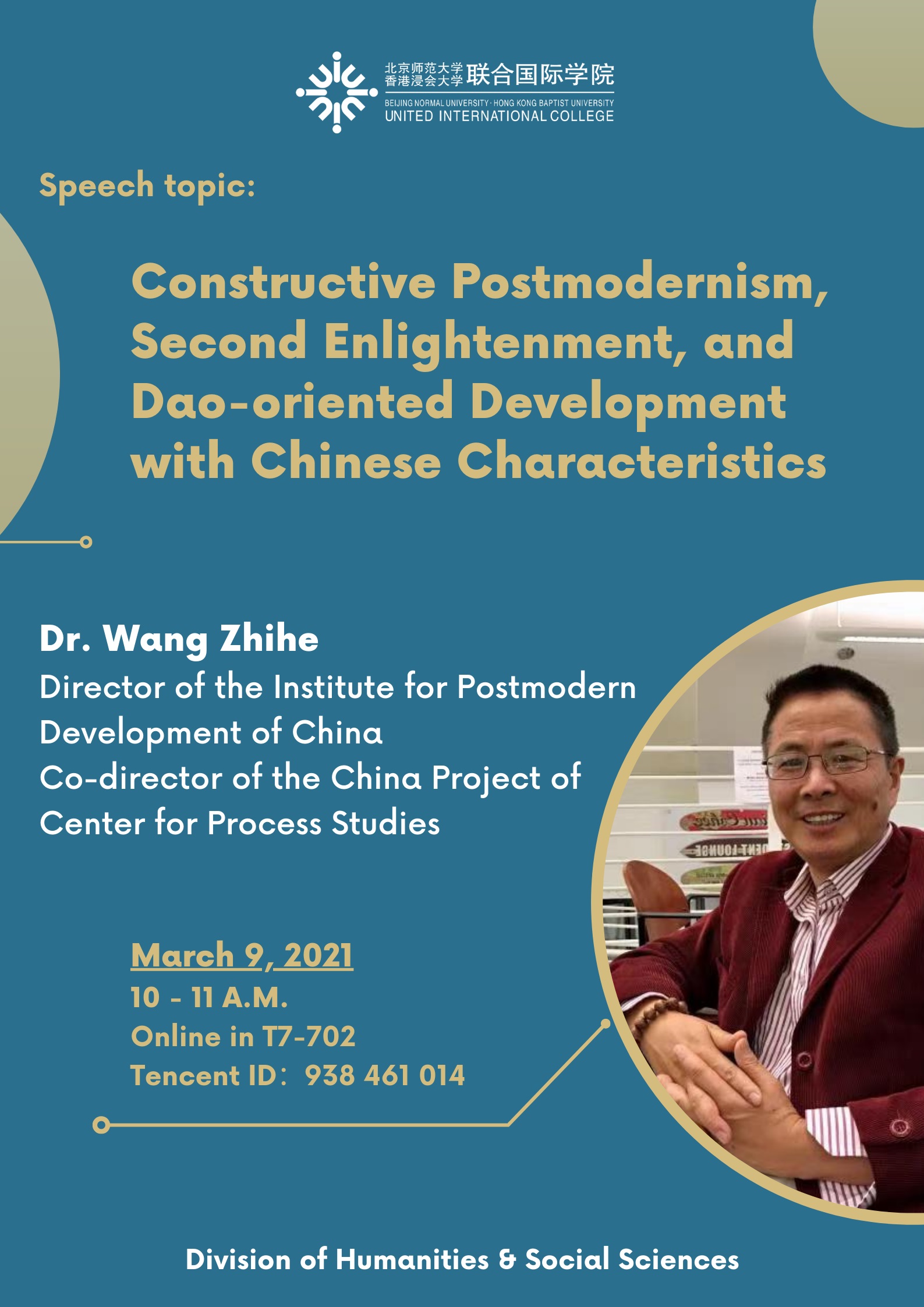
Abstract
Amid persisting poverty, widening inequality and increasing environmental deterioration, societies across the globe have begun to reflect on – and question - the modern, dominant notion of development, still largely based on the tenets of the (first) Enlightenment. A new, compassionate, holistic form of development inspired by a “Second Enlightenment”, which draws on principles of constructive postmodernism and Daoism, is therefore advocated to pursue the common good of both nature and humankind. Such a new paradigm would provide the opportunity to overcome the shortcomings of modern, mainstream development approaches, and help rekindle a sense of meaning, belonging, purpose and, ultimately, happiness.
About the guest
Dr. Wang Zhihe, a former researcher of Chinese Academy of Social Sciences, received his Master's Degree in Western Philosophy from Peking University, China, and his Ph.D. in Philosophy of Religion from Claremont Graduate University, USA. He currently serves as Director of the Institute for Postmodern Development of China, and Co-director of the China Project, at the Center for Process Studies. He is also an executive member of the Ecological Development Union International (EDUI) as well as an expert advisor of the China Biodiversity Conservation and Green Development Foundation. He is a leading figure in the constructive postmodern movement, as well as in the ecological movement in China. His areas of specialty include process philosophy, constructive postmodernism, ecological civilization, and Second Enlightenment. His publications include several books, including Ecological Civilization and Marxism (2008); Second Enlightenment (with Meijun Fan, 2011); Process and Pluralism: Chinese Thought on the Harmony of Diversity (2012); Green Development and Innovation from A Global Perspective (with Jianjun Zhao, 2013).

